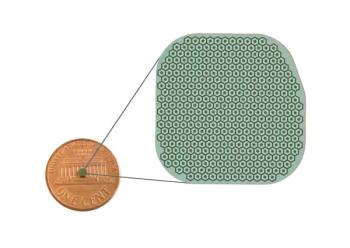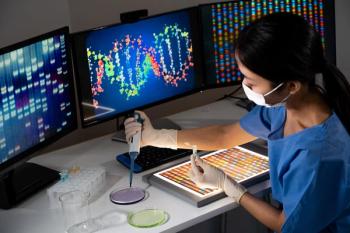
ARVO 2024: Tackling the epidemic of AMD and reintroducing prevention strategies with this year's Proctor Award Lecture winner
Emily Chew, MD, who won this year's Proctor Award, outlines her presentation on preparing for estimated doubling of age-related macular degeneration cases in the next 25 years at ARVO 2024.
With age-related macular degeneration (AMD) cases estimated to double in the next 25 years, Emily Chew, MD, reintroduced the importance of prevention strategies at this year's annual Association for Research in Vision and Ophthalmology (ARVO) meeting. Chew's lecture landed her this year's Proctor Award.
Video Transcript
Editor’s note - The following transcript has been lightly edited for clarity.
Emily Chew, MD:
Hi, I'm Emily Chew. I'm from the National Eye Institute. I was very privileged and honored to have received the Proctor Award this year. I'm going to tell you a few words, and just a few thoughts from this lecture that was given yesterday at ARVO. The talk was entitled "Tackling the epidemic of AMD and reintroducing prevention strategies." So age-related macular degeneration, or AMD, is the leading cause of blindness in the high income countries. And in fact, it really is about a third in all of the global type of blindness. And it's been estimated by 2040, we'll have 288 million people who will be affected by AMD. Although the incidence itself, that's number of people that's getting it each time, is sort of is reduced to some extent, because [we have a] better lifestyle, we're not smoking as much, we're eating better. But the number of people who actually are growing older, is increasing. So by 2050, instead of a billion people that are 60 years old in 2020, we will have 2.1 billion people, so it's doubling. And we're going to have over 436 million people over age 80. So the number of patients will really increase. So in order to really help this epidemic, what can we do? So there's some prevention methods we all know about already AREDS/AREDS2, are supplements, and multivitamins and zinc that we actually tested in National Eye Institute. And AREDS2 was sort of the final supplement because we discovered that beta carotene can increase the risk of lung cancer in former smokers. So for this reason we recommend people who have intermediate AMD should have or should be put on AREDS supplement, especially AREDS2, which has lutein, Zeaxanthin, vitamin C, vitamin E, zinc and copper. That can reduce the number of people from going blind or getting macular degeneration by as much as 300,000 people in five years. In addition to that, we're looking at the 'omics or the metabolomics, and proteomics to learn how we can actually better look after people with early AMD. We believe prevention is very important. If we can do something early, that would be much better than having to have get late disease [treatment]. Late disease treatments are effective for neovascularization. But we're looking for better ways of giving it with less burden. In geographic atrophy, we're starting with some good drugs, but we need better efficacious drugs. So the unmet need is that we really need to look after these patients. It will be a huge number by the time we get older in the next decade or two, even though it's going down, but the number is gonna go really high up.
The last thing I want to talk about is the fact that we can help physicians look after patients by using artificial intelligence. Medical artificial intelligence can help us better diagnose and perhaps detect disease, monitor disease, and even predict disease, and that might help us better care [for] patients. And there's going to be a shortage of physicians. So the more we can help the physicians, the better we will be. So with this, I think it's important to think of prevention for macular degeneration. That's going to be the key. And we at the National Institute are working on projects that do prevention, prevention, prevention.
Well, I was delighted to get the Proctor Lecture Award. It was especially sweet because there's two awards, the Proctor and the Friedenwald Award, and my buddy from National Eye Institute got it. So it was shining a light on the National Eye Institute. So it's really not just for me, it's for our institute. The fact that we all work together and our colleagues get together and our common mission is to reduce blindness and improve the quality of life in patients. So it's very meaningful for us, especially when the two of us have gotten it and it's a real, it's a real honor to to be part of this
Newsletter
Want more insights like this? Subscribe to Optometry Times and get clinical pearls and practice tips delivered straight to your inbox.





























